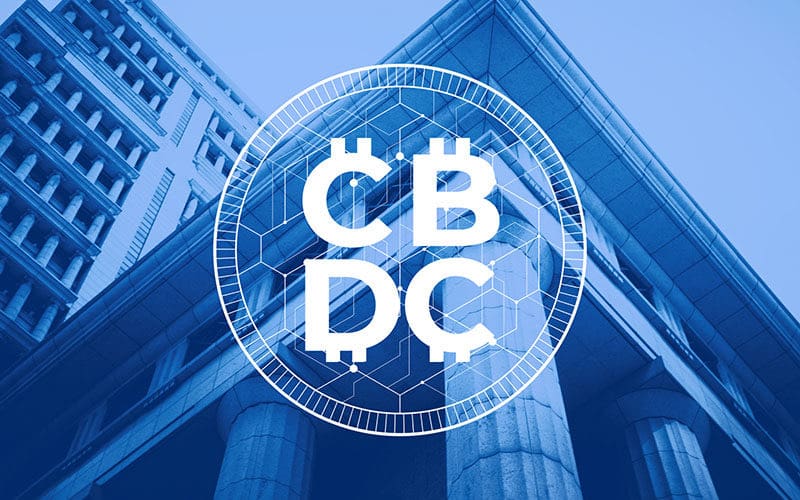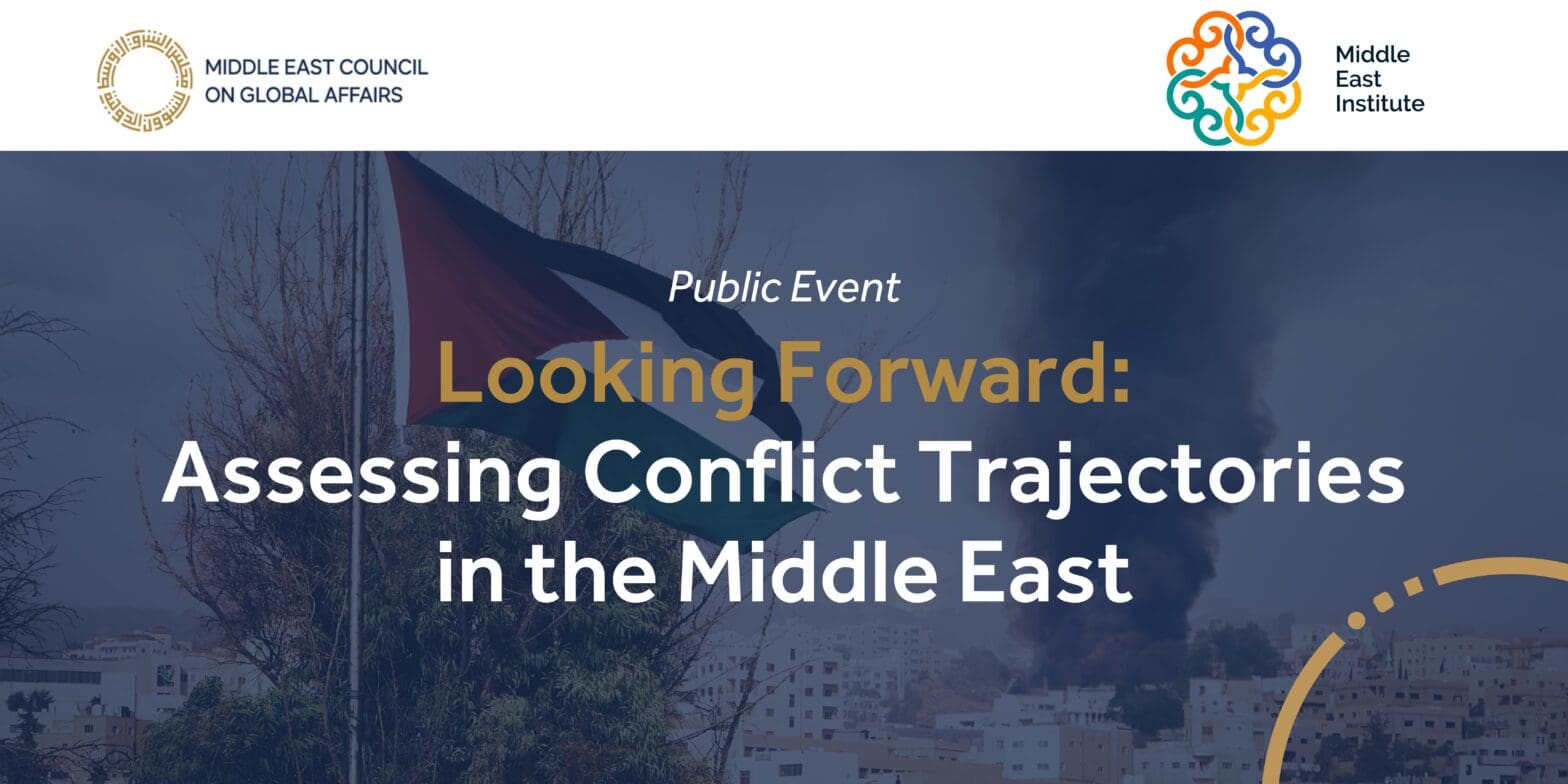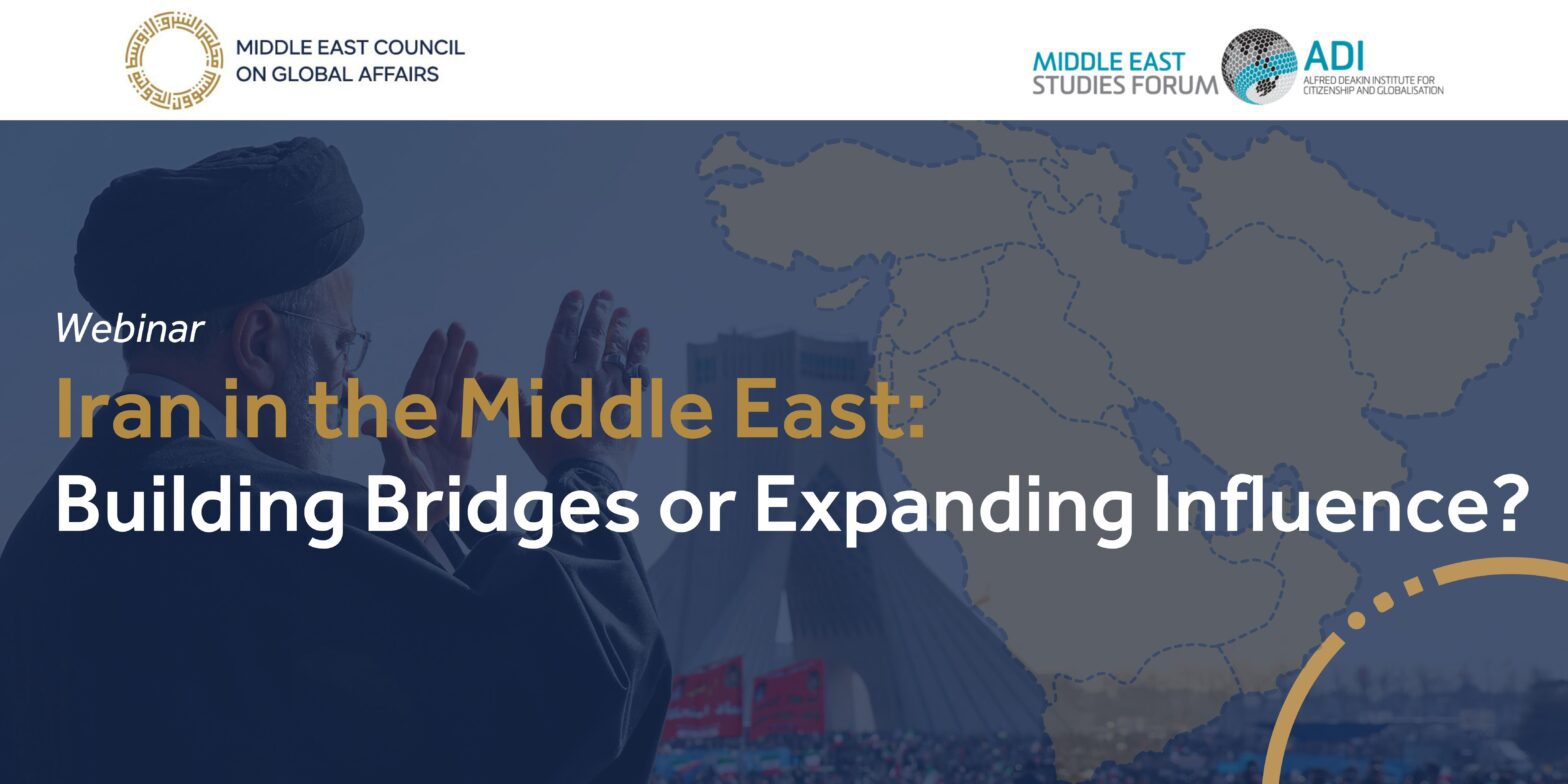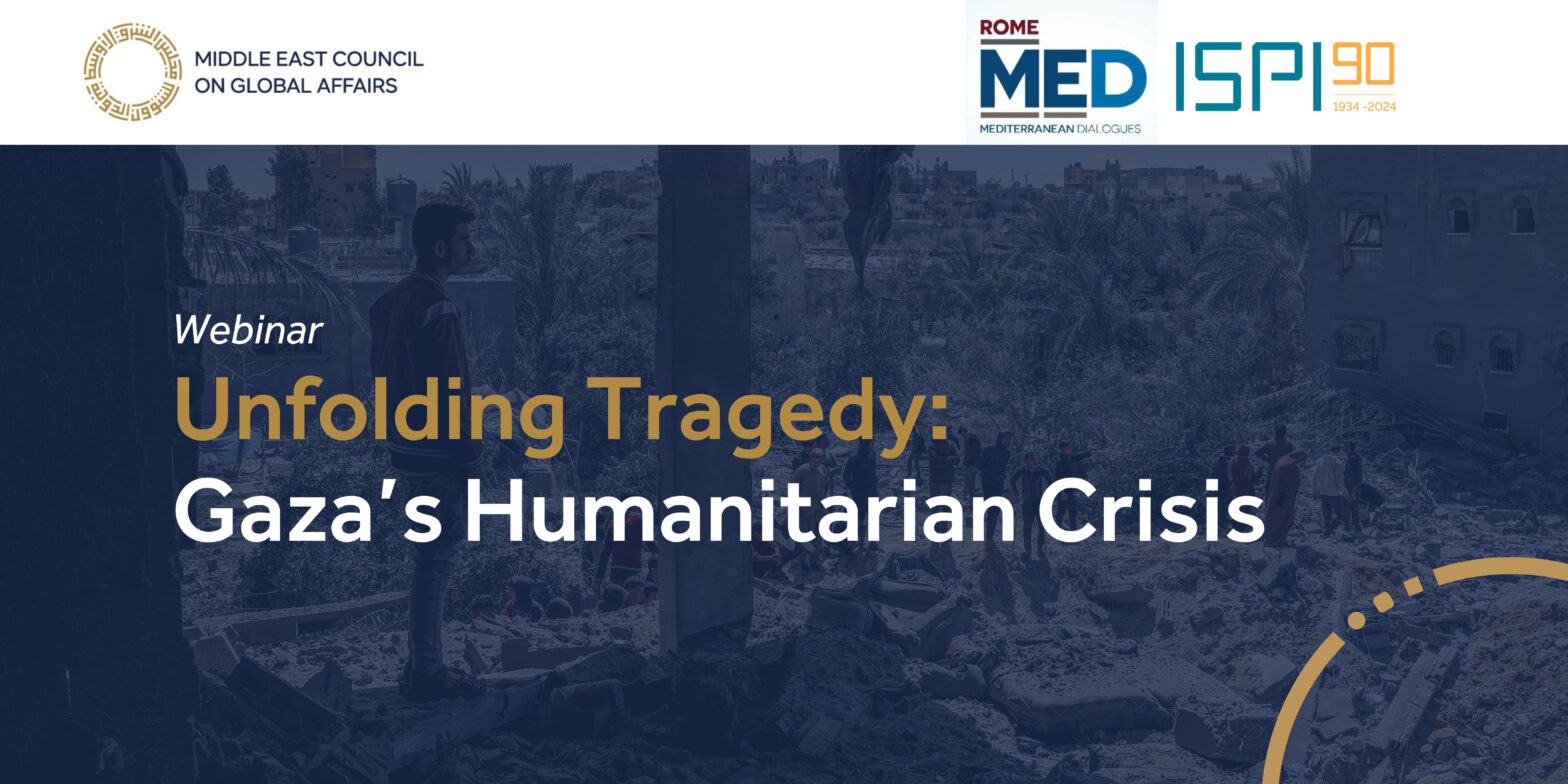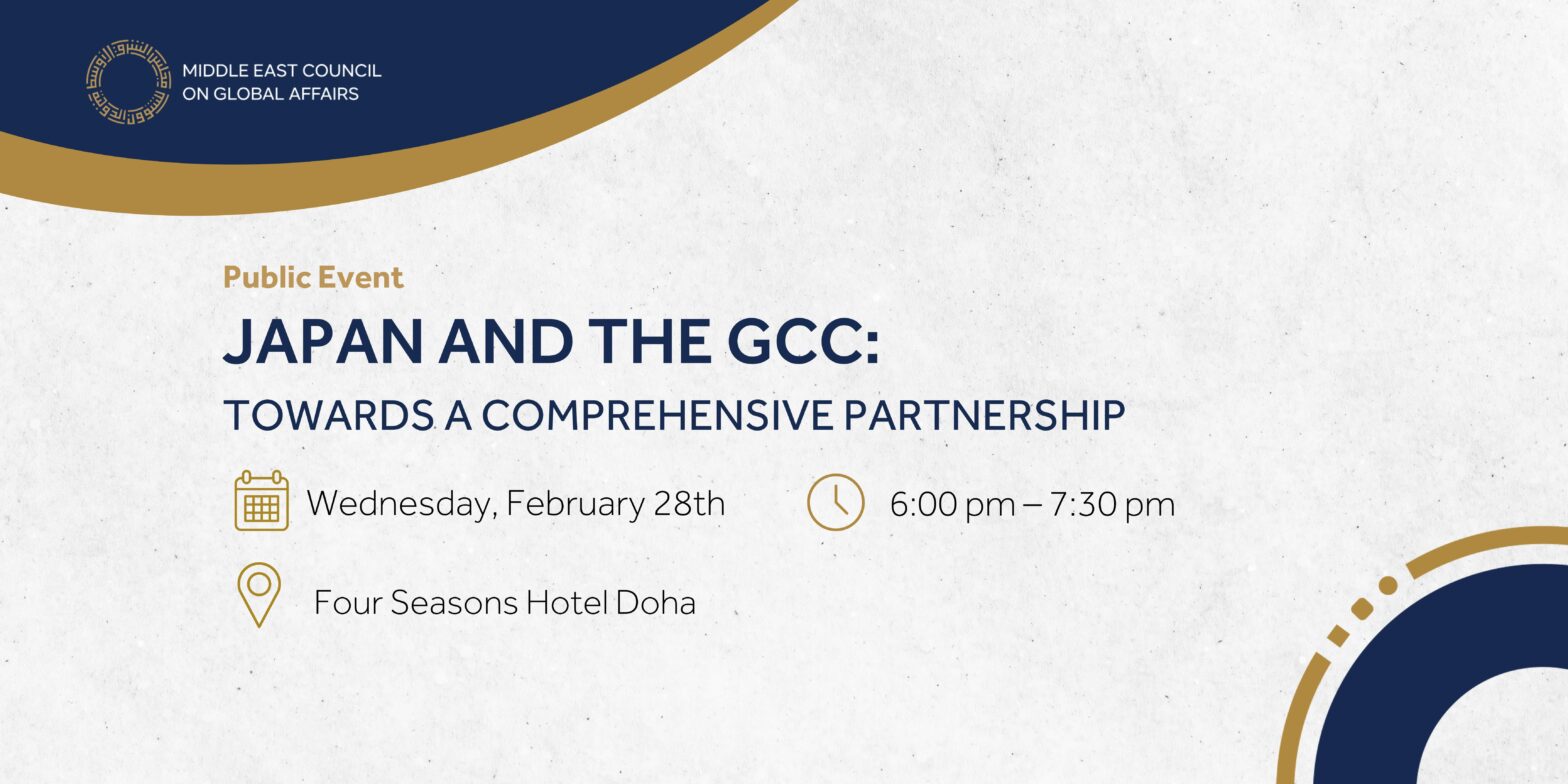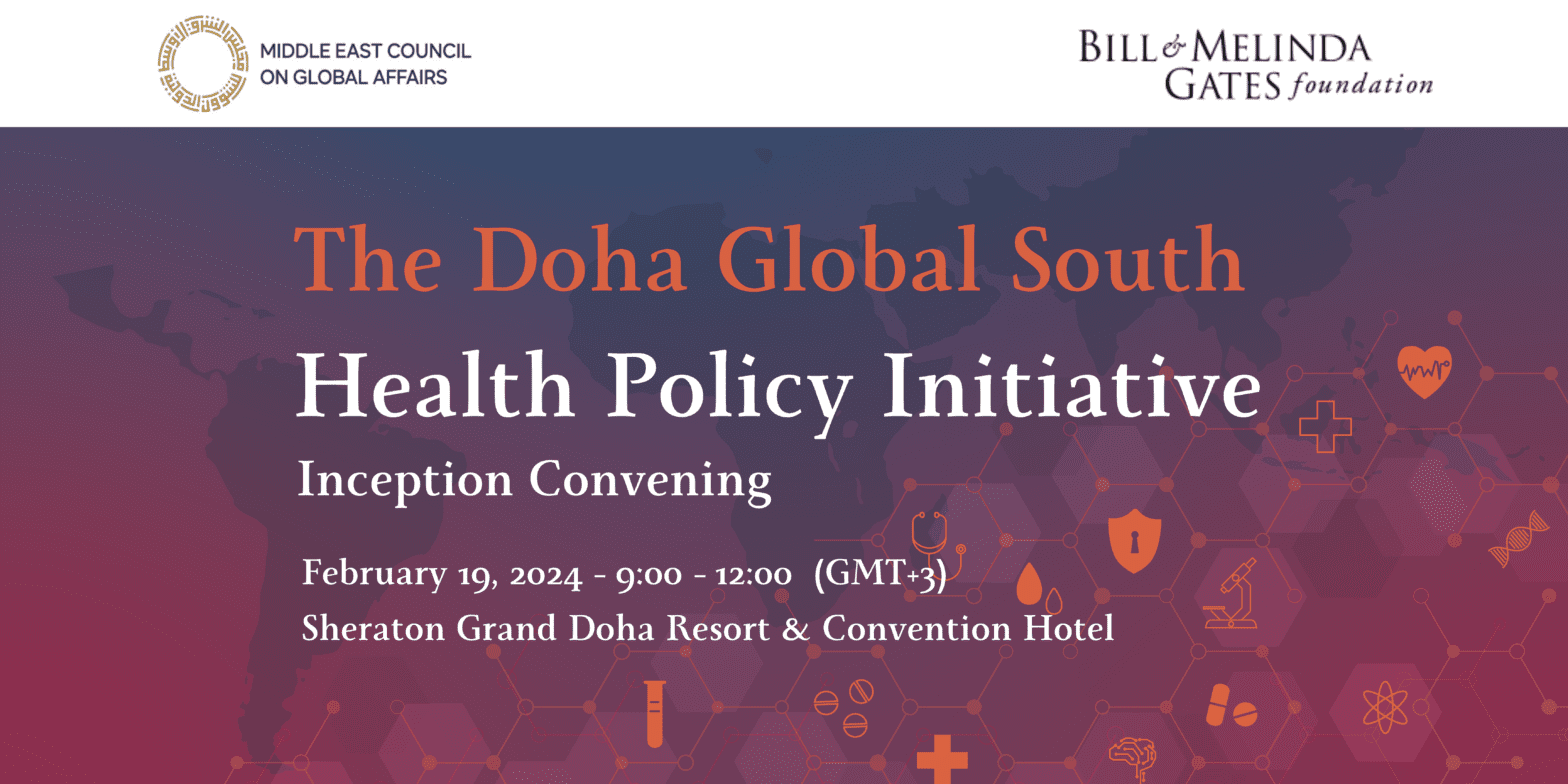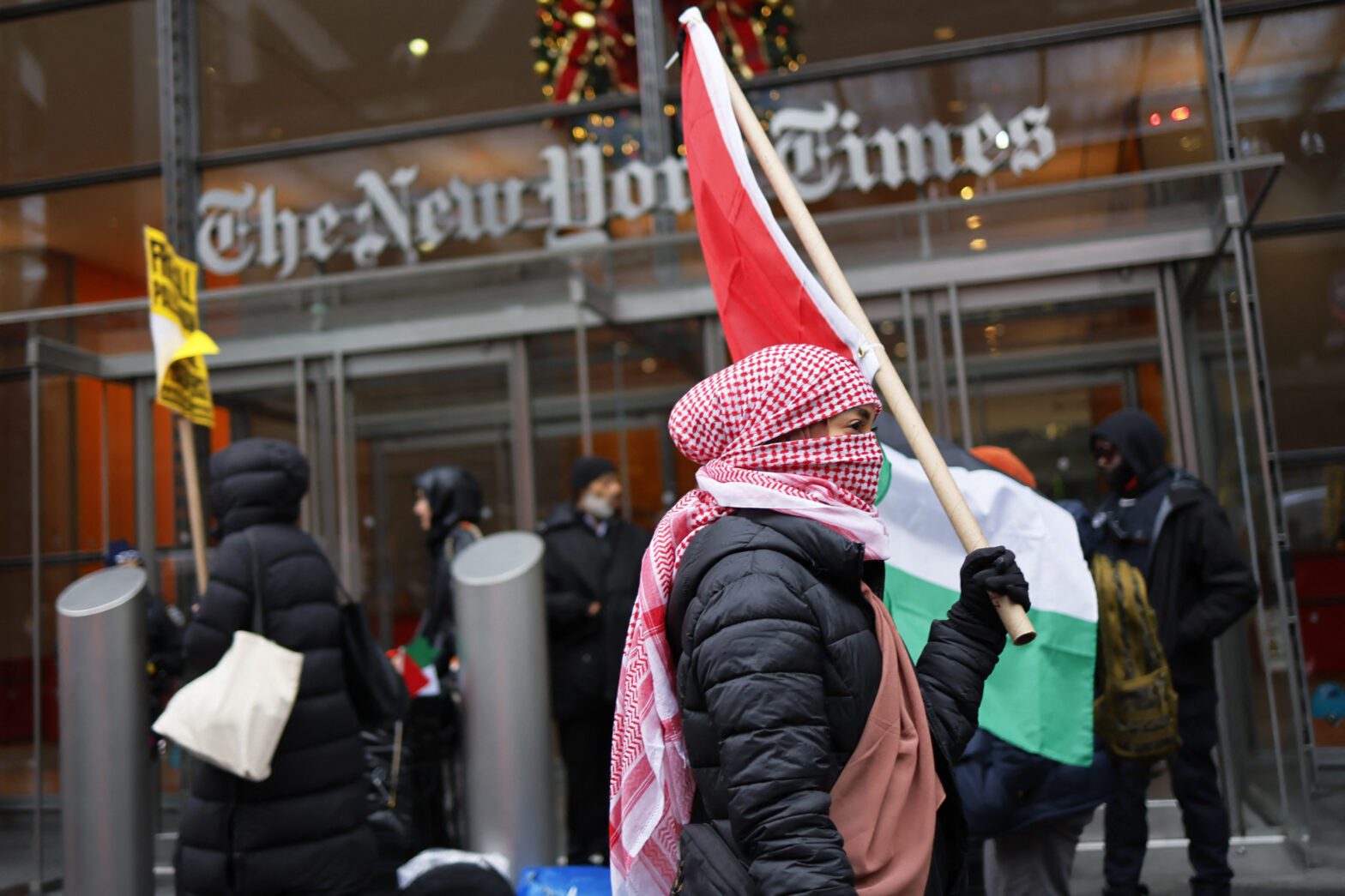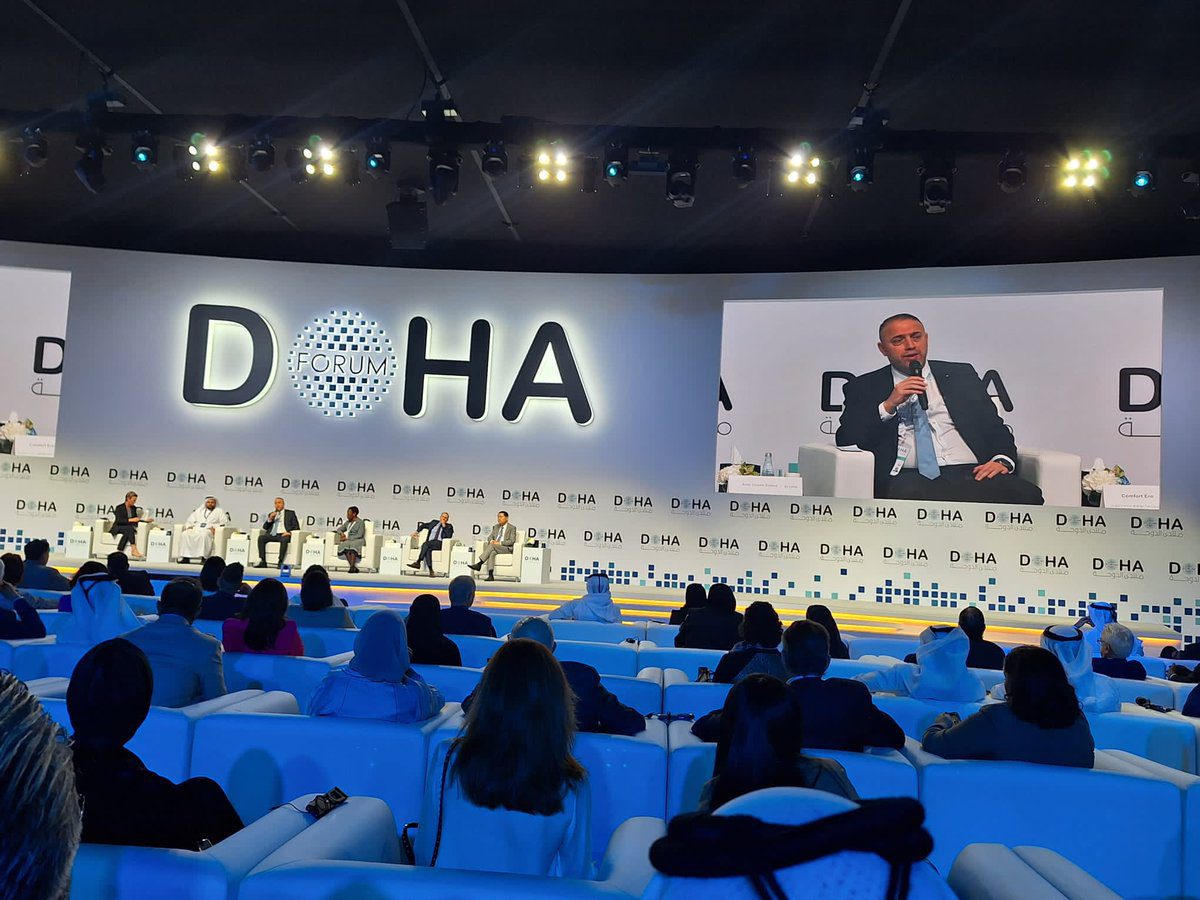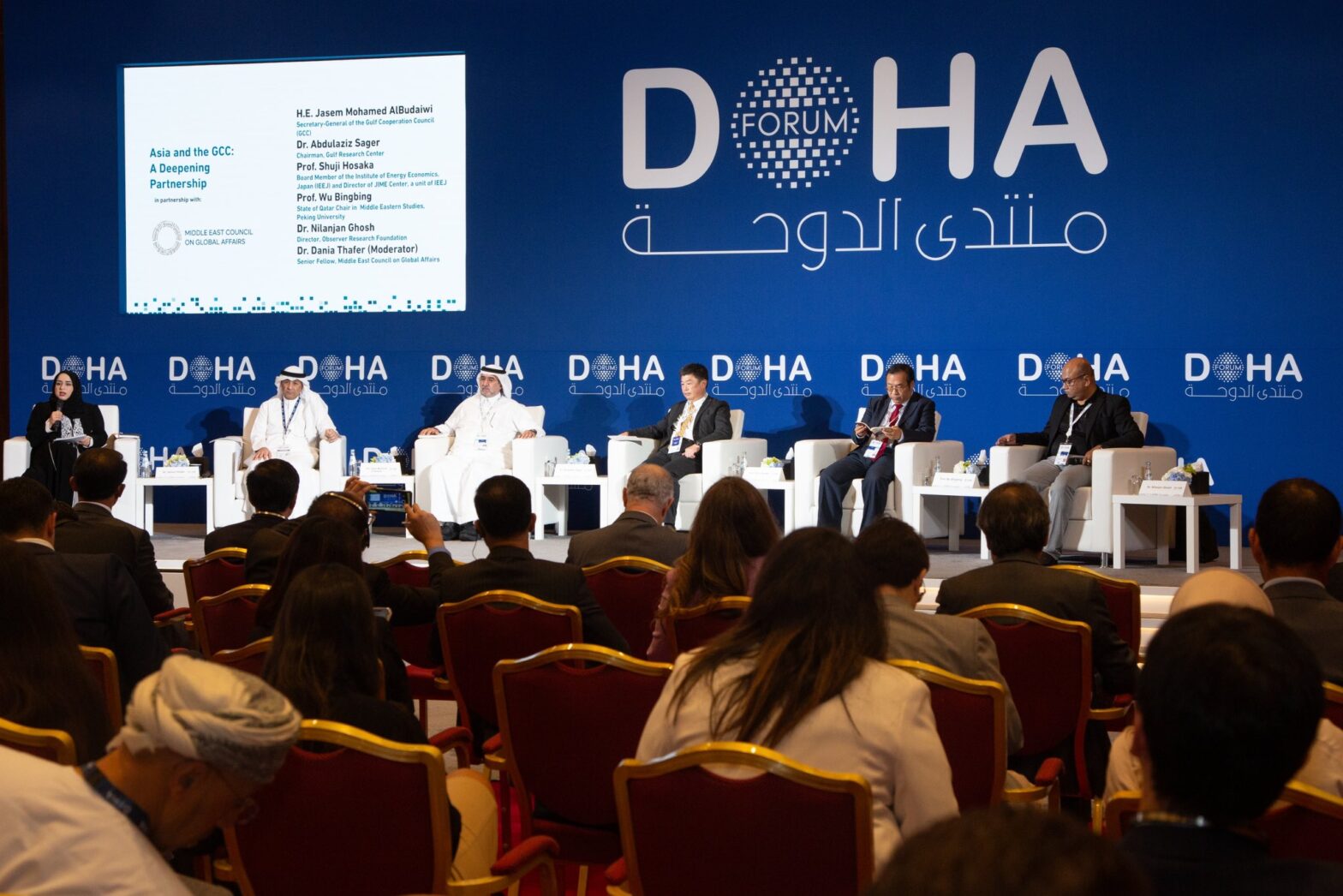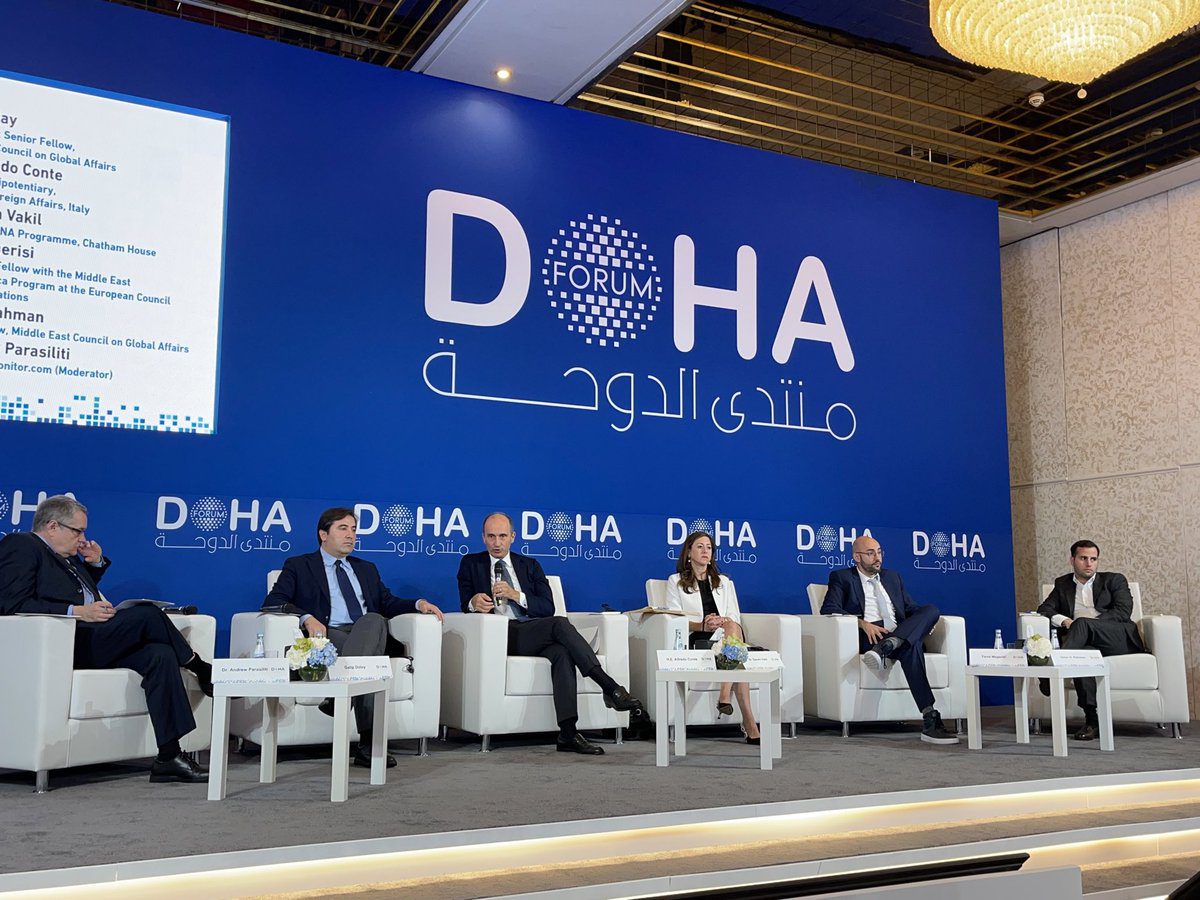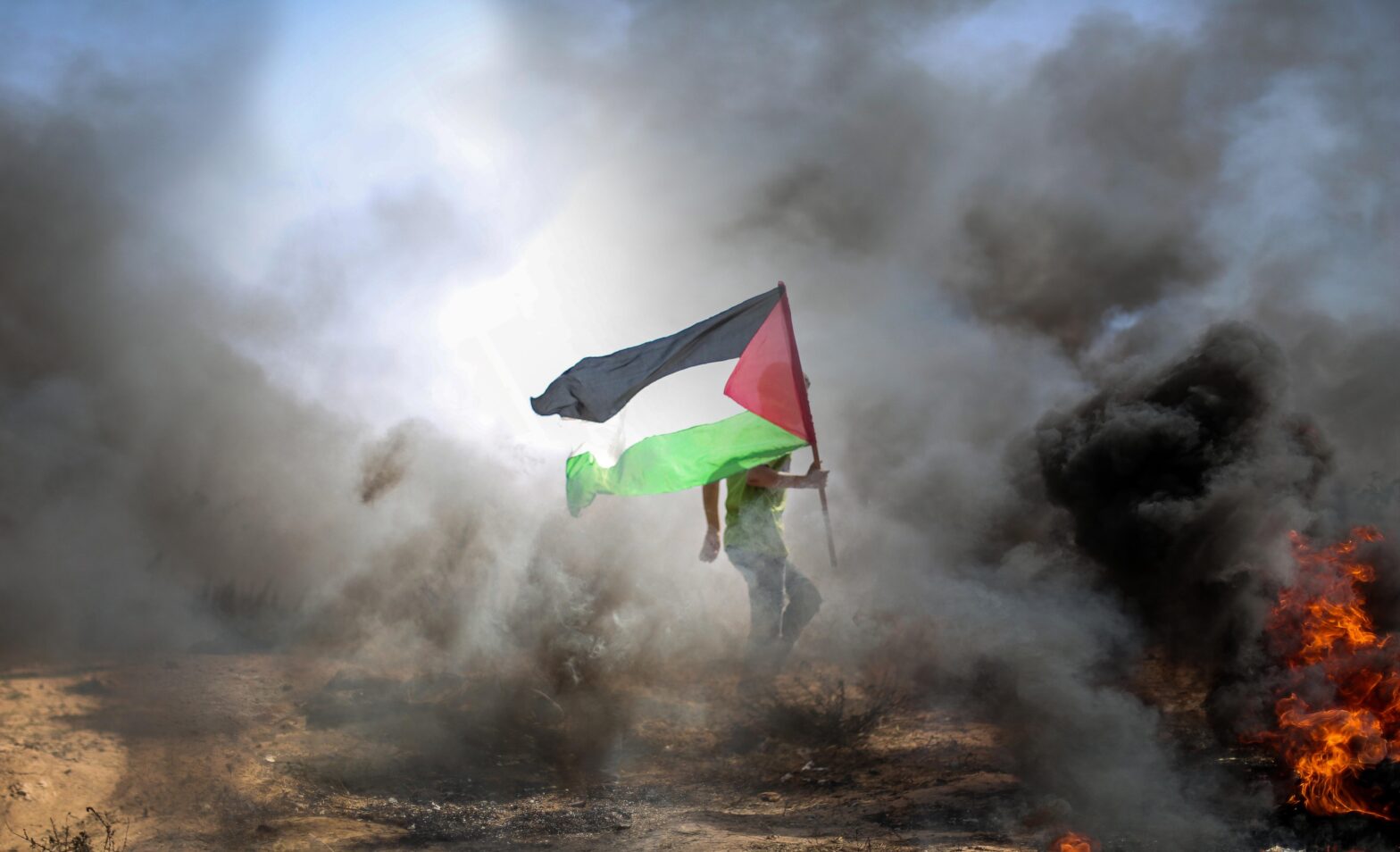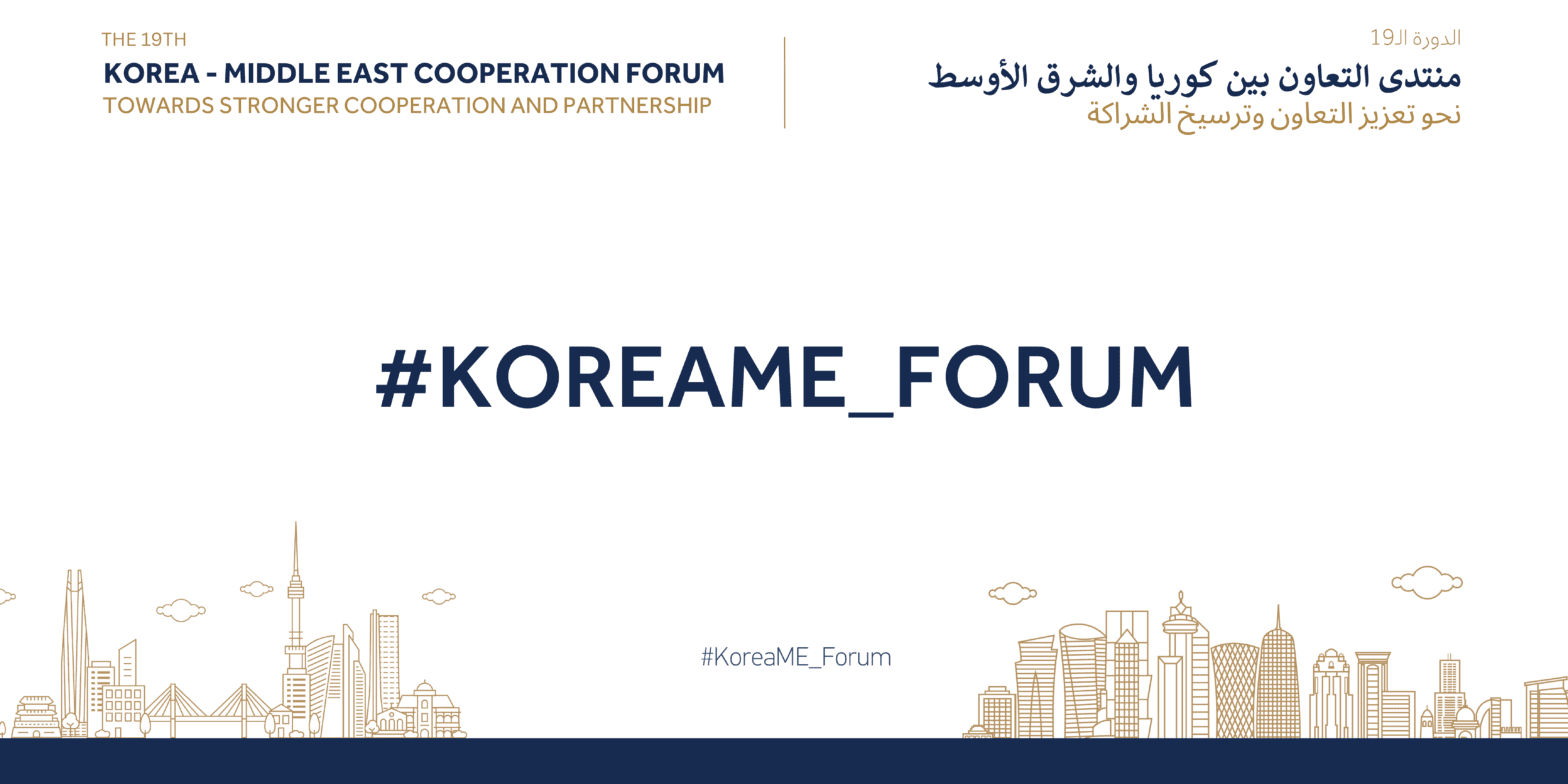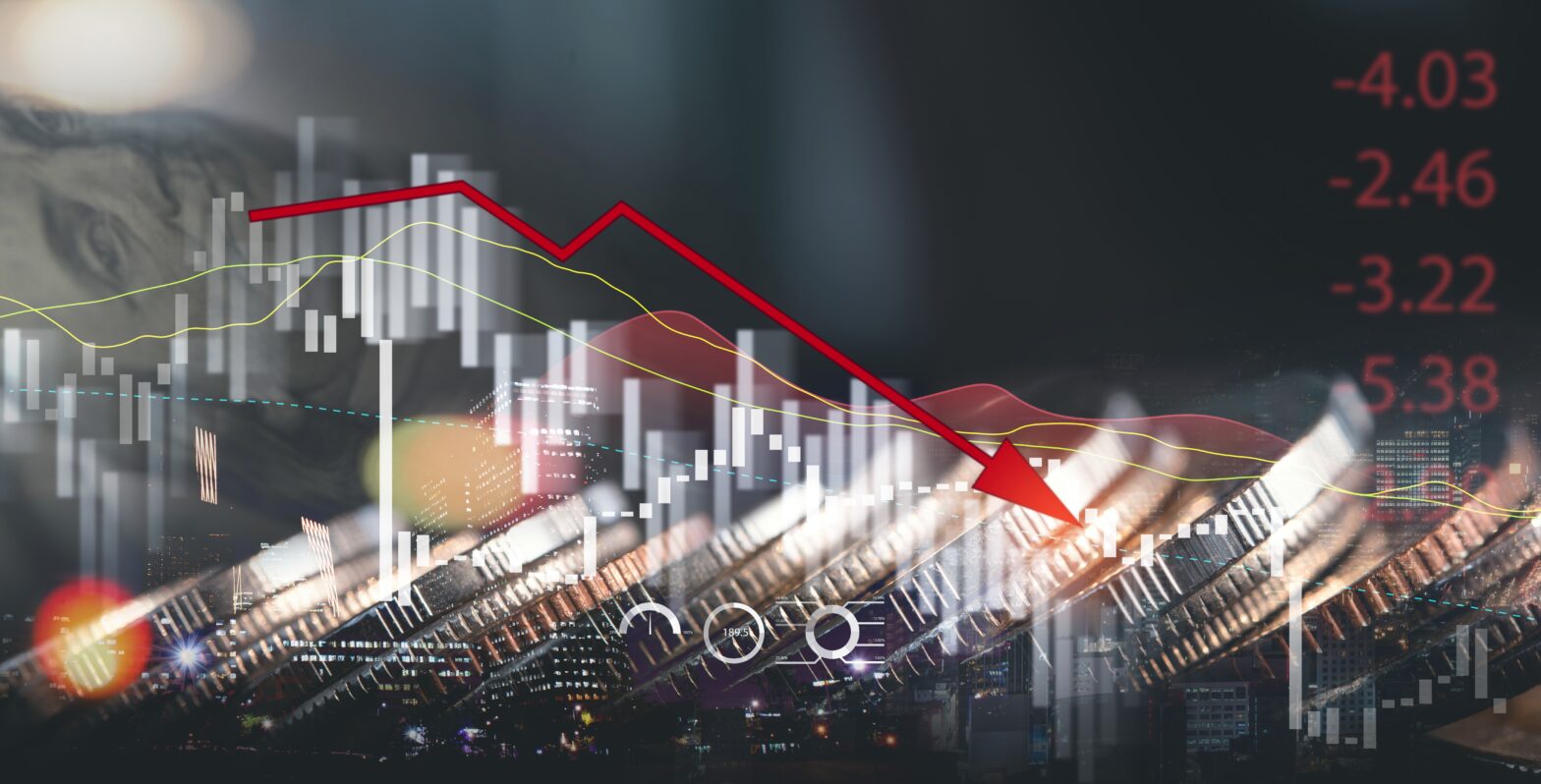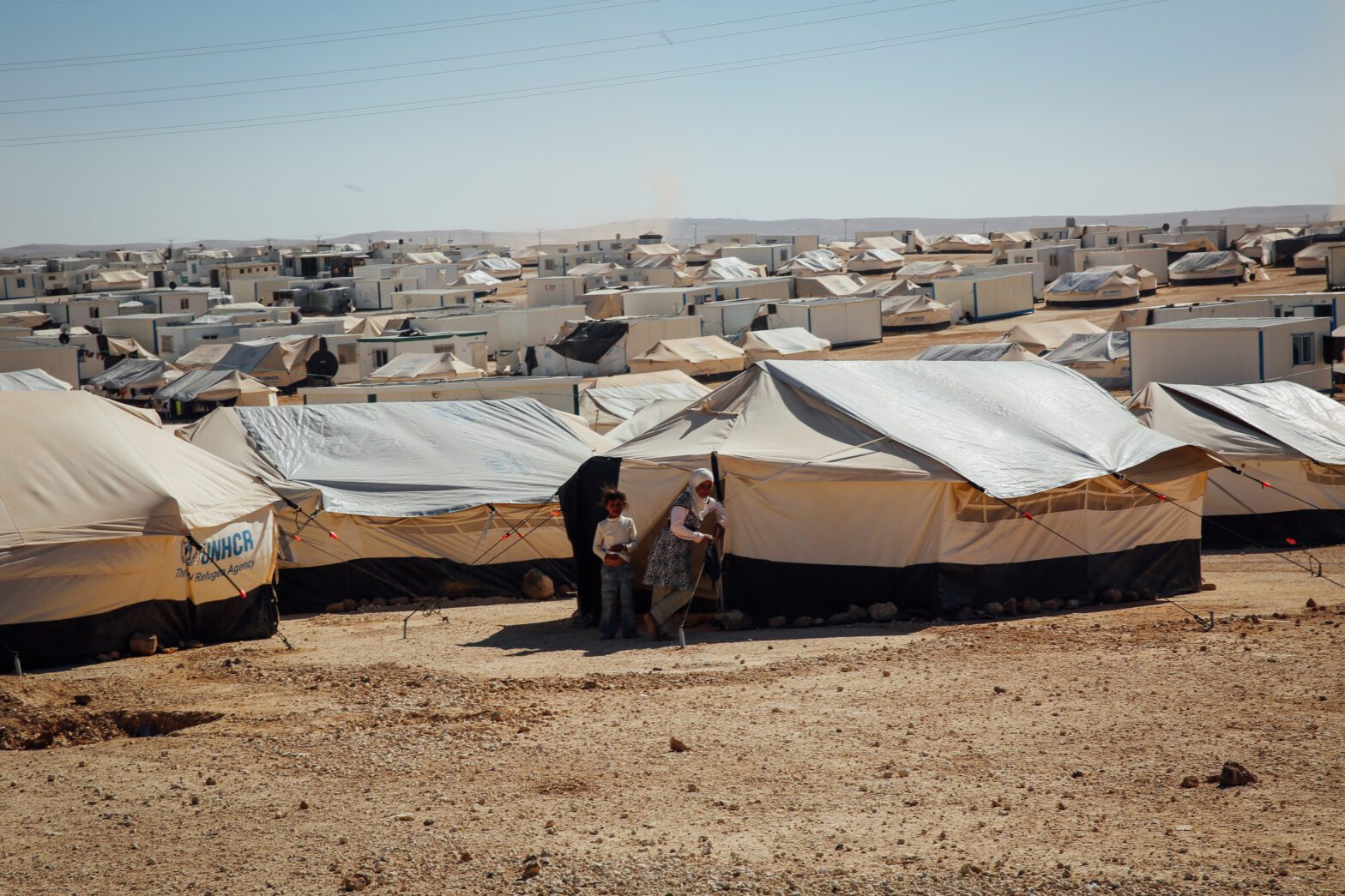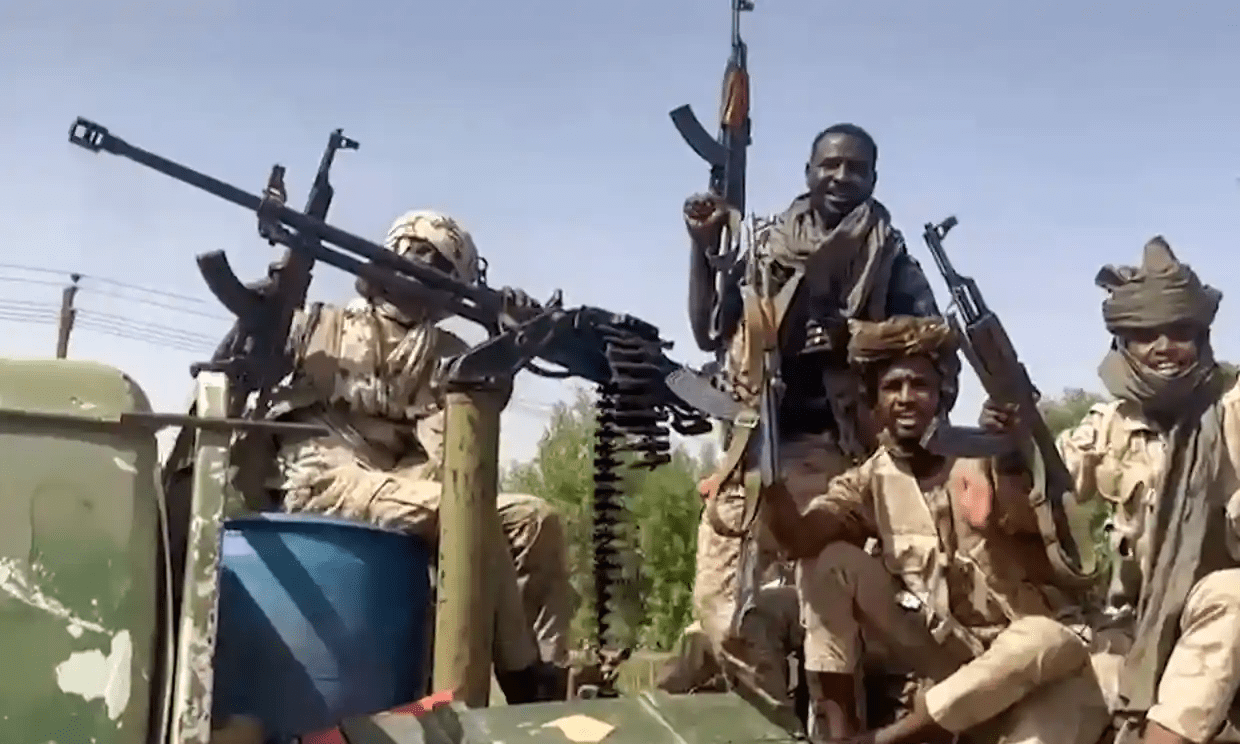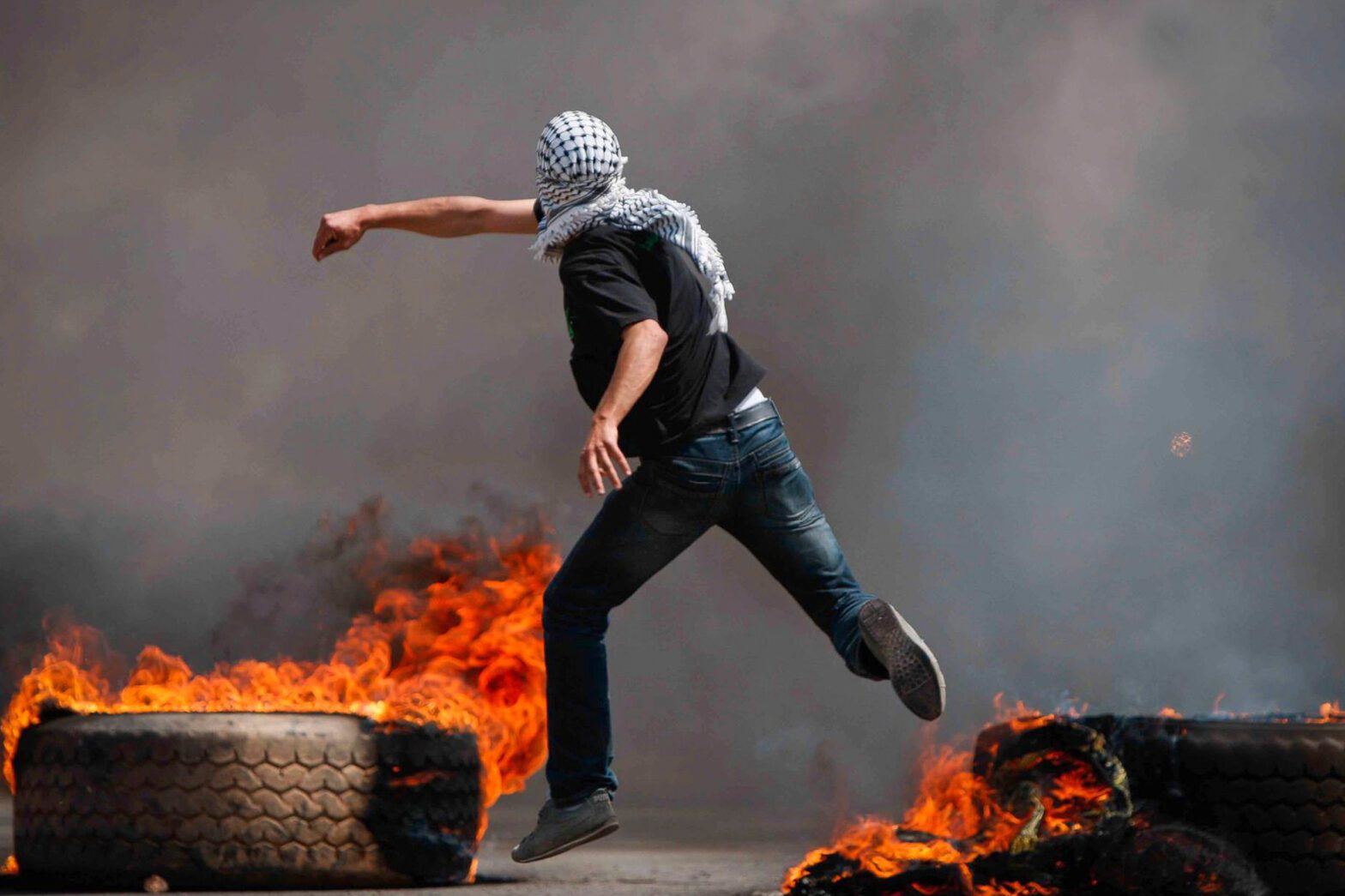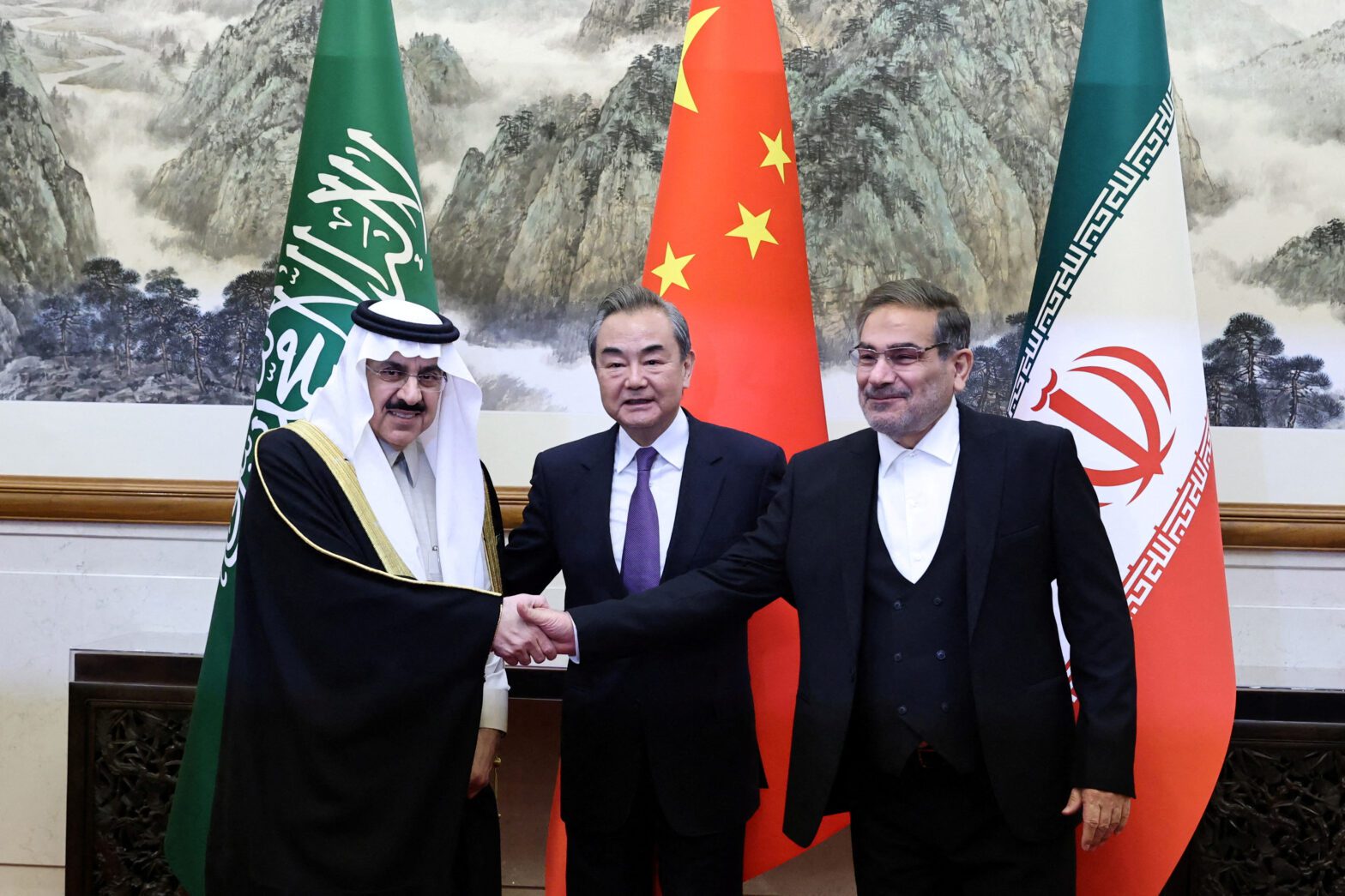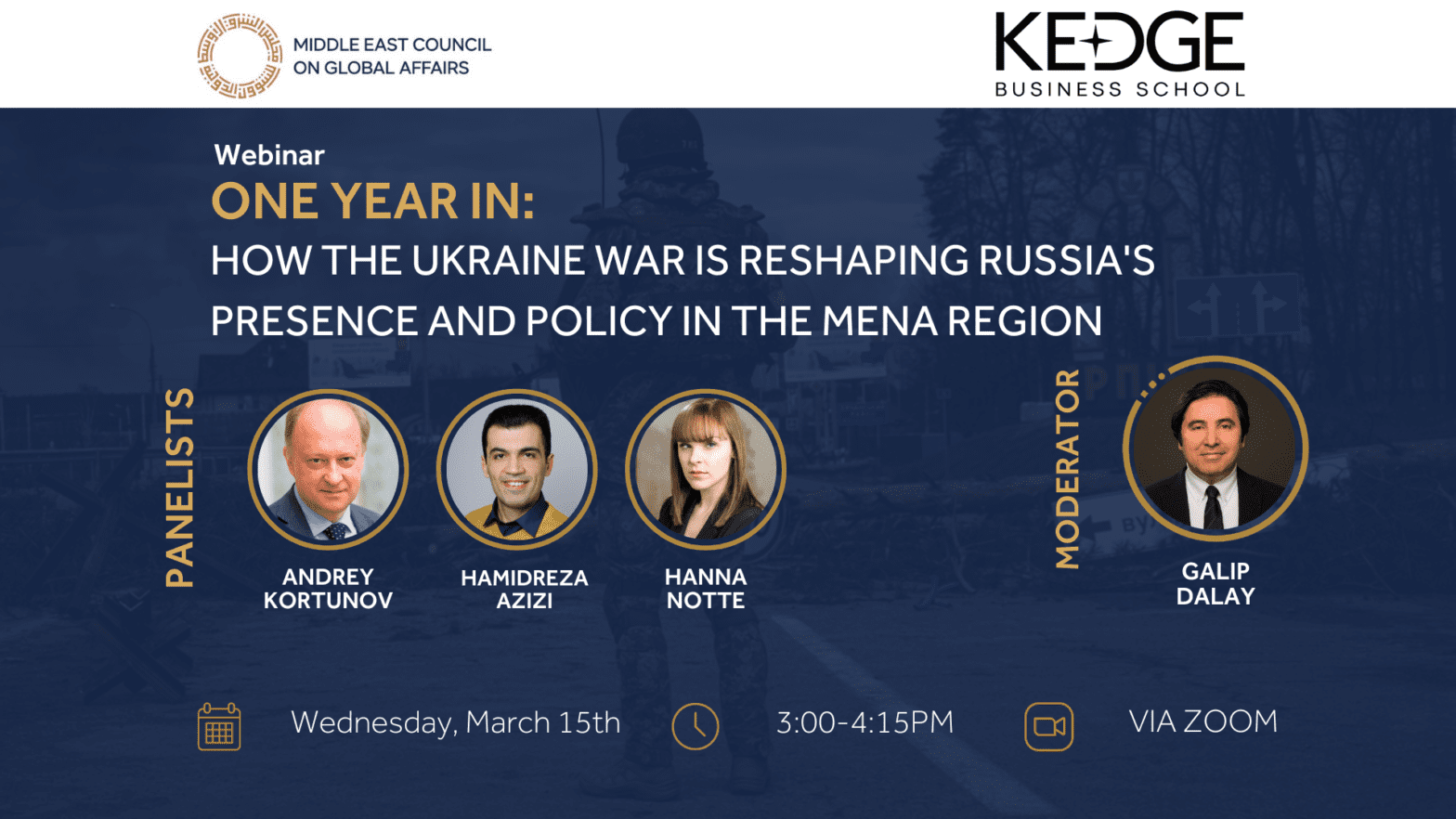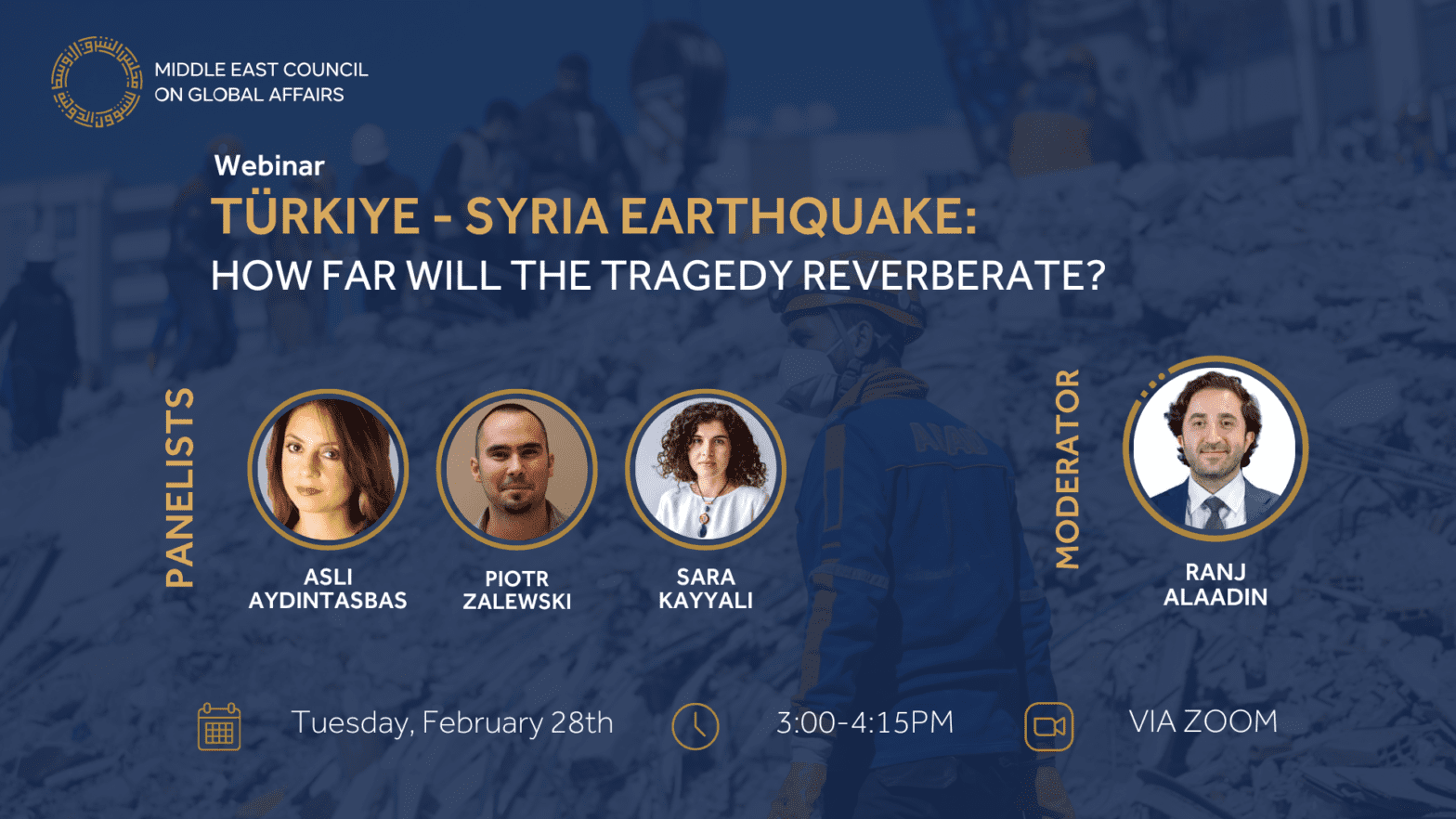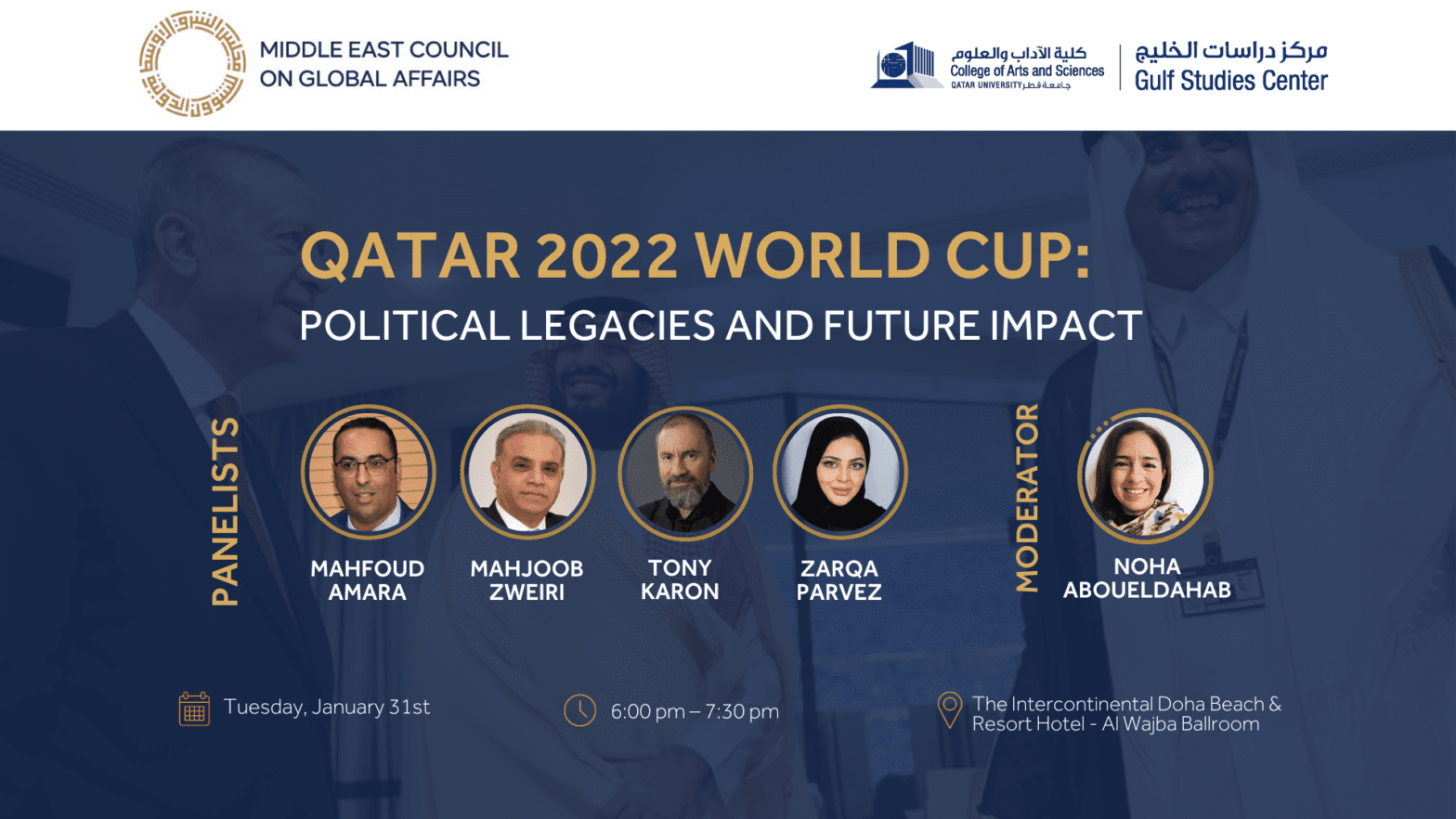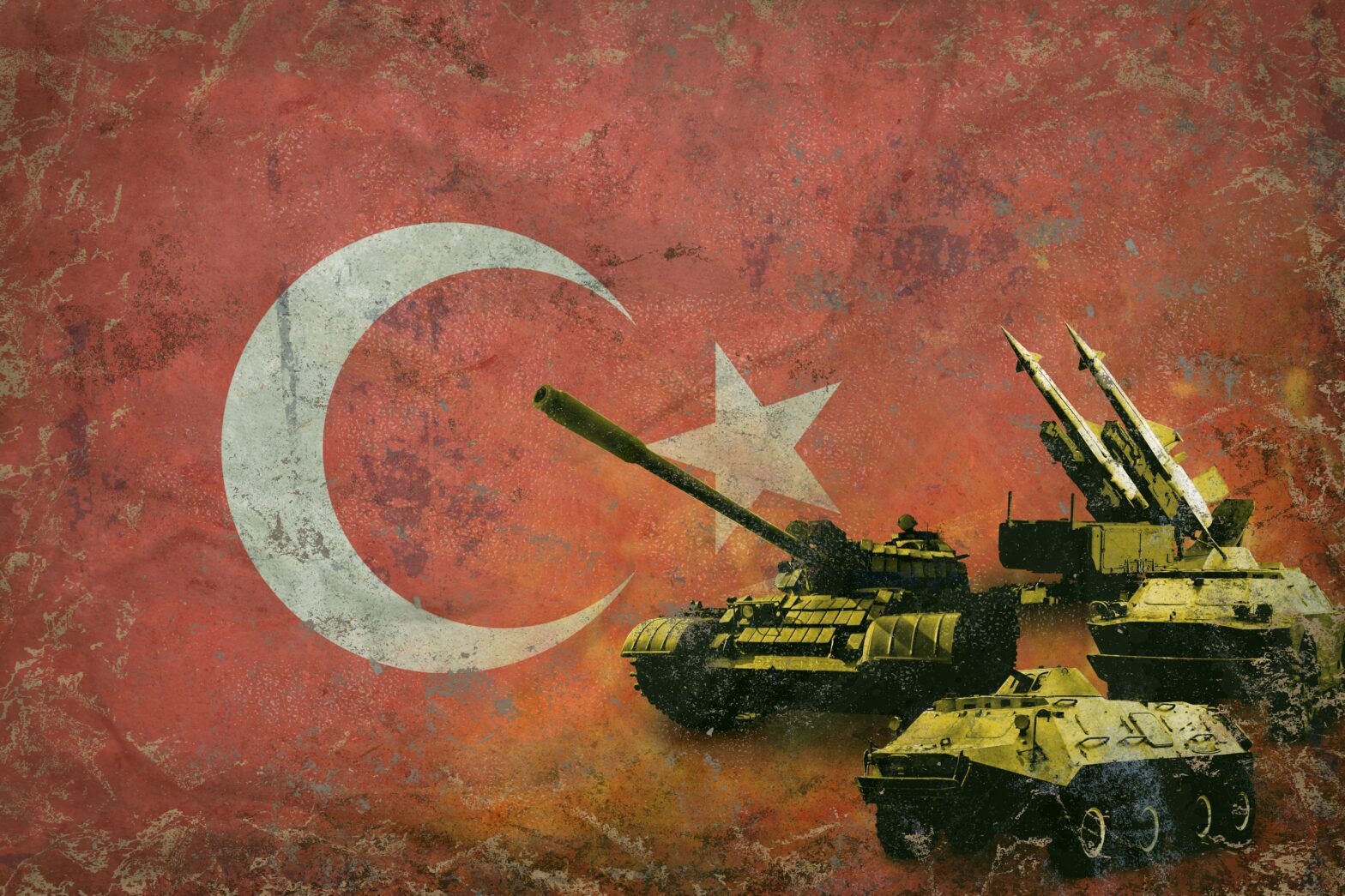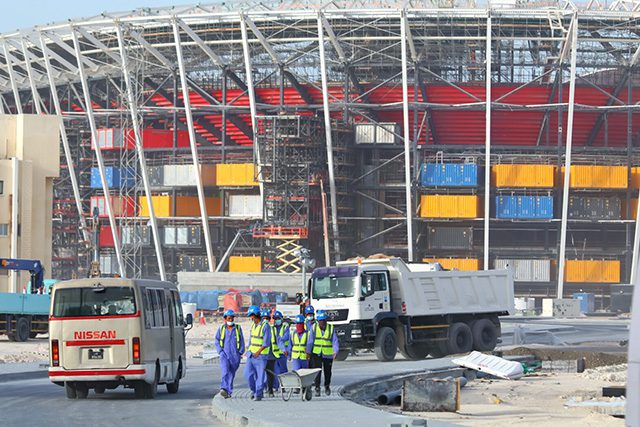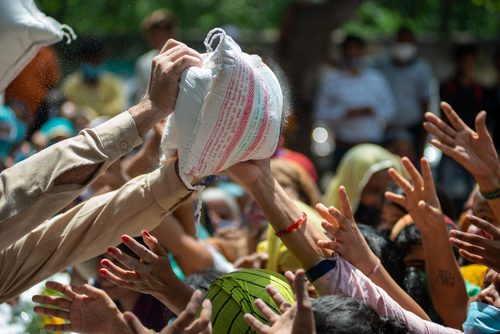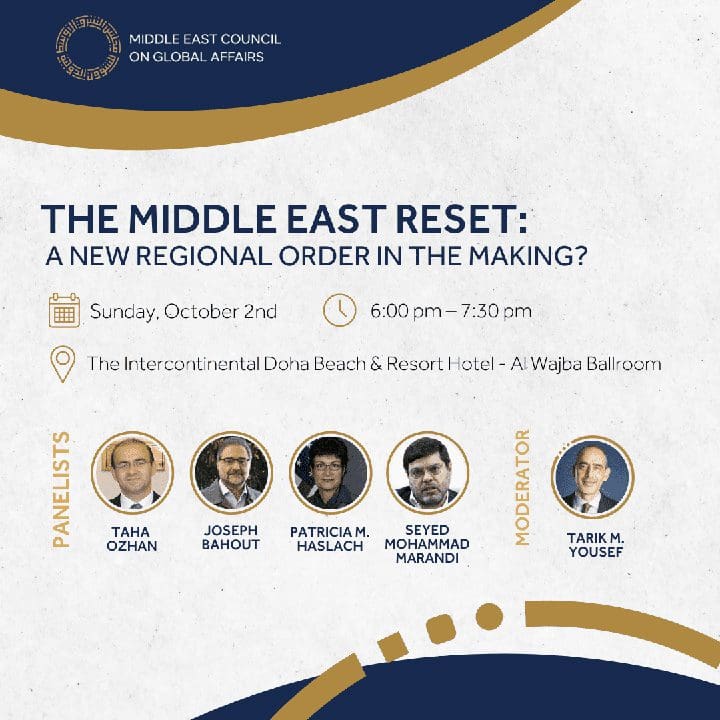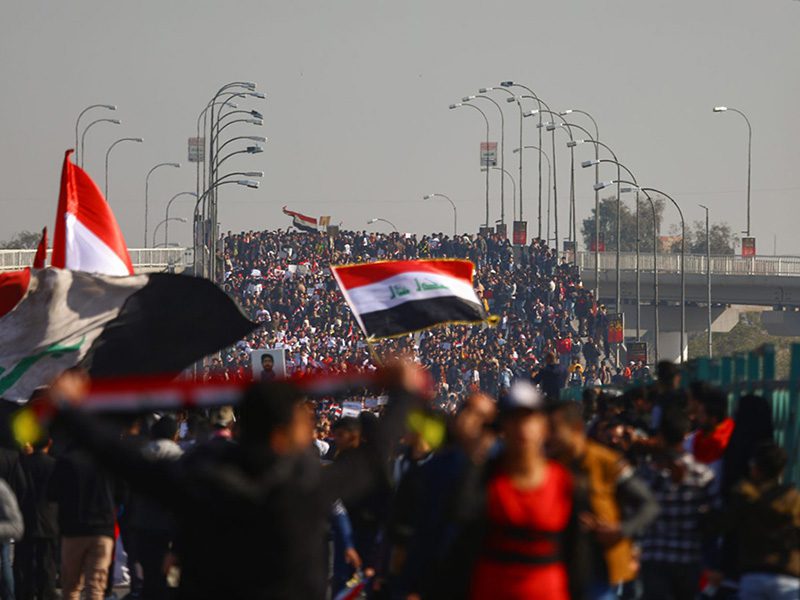ME Council is holding a webinar to discuss with a panel of experts the results of the presidential elections in Iran following the death of former President Ebrahim Raisi.
Archives: Events List
Reinventing Money: Central Bank Digital Currencies and their Global Implications
ME Council held a roundtable discussion on Central Bank Digital Currencies (CBDCs) and their implications on May 10 and 11, 2024 in Istanbul, Türkiye, and in collaboration with the UNDP’s Istanbul International Center for Private Sector Development.
The Belt and Road Initiative Ten Years On: Challenges, Opportunities, and Prospects for China-Middle East Cooperation
The Middle East Council on Global Affairs (ME Council) co-hosted a workshop titled “The Belt and Road Initiative Ten Years On: Challenges, Opportunities, and Prospects for China-Middle East Cooperation” in partnership with the Shanghai Academy of Social Sciences (SASS). The event took place on April 25-26, 2024, at SASS.
Looking Forward: Assessing Conflict Trajectories in the Middle East
To explore the future trajectories of conflict in the region, the Middle East Council on Global Affairs (ME Council), in collaboration with the Middle East Institute (MEI), will host a public panel discussion. Experts will explore regional de-escalation and conflict resolution efforts amidst the war on Gaza.
The Middle East Reset Amid the War on Gaza
The Middle East Council on Global Affairs is hosting a webinar to analyze the shifting regional order amid Israel’s brutal military campaign in Gaza and in the wake of Iran-Israel escalation.
Iran in the Middle East: Building Bridges or Expanding Influence?
In collaboration with the Middle East Studies Forum (MESF) at Deakin University, the Middle East Council on Global Affairs (ME Council) hosted an online panel discussion on “Iran’s role in the Middle East: Building Bridges or Expanding Influence?” The event marked the launch of an ME Council dossier encompassing the same topic, edited by Shahram Akbarzadeh, a nonresident senior fellow at the ME Council, and Hamidreza Azizi, a nonresident fellow at the ME Council. Shahram Akbarzadeh moderated the event and highlighted the session’s significance against the backdrop of escalating regional tensions amid the ongoing war in Gaza. The panel featured Hamidreza Azizi alongside experts Mehran Kamrava, professor of government at Georgetown University in Qatar, and Azadeh Zamirirad, deputy head of the Africa and the Middle East division at the German Institute for International and Security Affairs (SWP).
Unfolding Tragedy: Gaza’s Humanitarian Crisis
More than six months into the war between Israel and Hamas, the humanitarian situation in the Gaza Strip is every day more severe. More than 33,000 Palestinians have been killed, and over 75% of the total population has been displaced. Aid agencies agree that a famine is now imminent. Aid delivery has long been hindered by restrictions and concrete challenges on the ground, while the lives of humanitarian workers are endangered. This event delves into the crisis affecting the Gaza Strip, focusing on the humanitarian impact of the conflict, the management of aid in the Strip, and the politisation of humanitarian efforts since the outbreak of the conflict.
Annual Suhoor: Voices from the Arab Diaspora: Public intellectuals, Literature, and Exile
The Middle East Council on Global Affairs (ME Council) hosted a Suhoor Gala, featuring a panel discussion featuring prominent Arab writers and public intellectuals who address various issues concerning the Arab world from their perspectives in the diaspora. The panel discussed topics such as identities, hyphenated identities, how their status as Arab exiles influences their writing, and their position in both historical and contemporary contexts of Arab intellectuals in exile or the diaspora.
Japan and the GCC: Towards a Comprehensive Partnership
The Middle East Council of Global Affairs (ME Council) convened a panel of experts who touched on the historical foundations of Japan-GCC ties, the economic interdependence between both regions, and the evolving strategic and geopolitical considerations shaping this critical partnership.
The Doha Global South Health Policy Initiative
The Middle East Council on Global Affairs and the Bill & Melinda Gates Foundation, with the support of the Ministry of Foreign Affairs of the State of Qatar, have officially launched the Doha Global South Health Policy Initiative. To kick off this initiative, a high-level panel discussion titled “Enhancing Primary Healthcare Access in the Global South: Challenges and Solutions” was held on February 19, 2024, at the Sheraton Grand Doha. The event brought together representatives from nine low-and-middle-income Countries (LMICs) in Africa and Asia, alongside international experts and key stakeholders from Qatar, including the Ministry of Public Health, the Ministry of Foreign Affairs, Qatar Fund for Development, Qatar University, and Hamad Bin Khalifa University.
Shaping Public Opinion on Gaza: Disinformation, Propaganda, and Alternative Narratives
The Middle East Council on Global Affairs (ME Council) co-hosted the 18th Korea-Middle East Cooperation Forum on November 18, 200 in Seoul, Korea, in partnership with the Korea-Arab Society (KAS) and Jeju Peace Institute (JPI), the event was sponsored by the Ministry of Foreign Affairs of the Republic of Korea. First launched in 2003, this forum is a track 1.5 forum held annually in Korea and countries in the Middle East alternately and attended by both private and public sectors. The 19th forum will be held next year in Doha.
Palestine Has Become a Global Crisis – Does It Have a Global Solution?
The Middle East Council on Global Affairs (ME Council) organized a plenary discussion at the Doha Forum titled “Palestine Has Become a Global Crisis – Does It Have a Global Solution?” The plenary was moderated by Becky Anderson, managing editor and anchor of Connect the World at CNN, and included Mohammed bin Abdulaziz Al-Khulaifi, minister… Continue reading Palestine Has Become a Global Crisis – Does It Have a Global Solution?
Asia and the GCC: A Deepening Partnership
As the economic weight of the world shifts towards Asia, the Gulf Cooperation Council (GCC) is deepening ties with Asia’s biggest economies, including China, South Korea, Japan and India.
The Middle East’s Fragile Reset: What Future?
As part of the 2023 Doha Forum, the Middle East Council on Global Affairs held a panel discussion titled “The Middle East’s Fragile Reset: What Future?”
Gaza’s Unfolding Tragedy: Palestinian and Regional Perspectives
In response to these tragic events, the Middle East Council on Global Affairs (ME Council) in partnership with the Issam Fares Institute for Public Policy and International Affairs at the American University of Beirut hosted a webinar to offer Palestinian and regional perspectives. What is Israel’s endgame as it begins a military ground invasion? Does Hamas and the larger Palestinian national movement have a strategy? Is the regionalization of this conflict inevitable? How will the broader international community respond, and what are the geopolitical implications beyond the region?
The 19th Korea Middle East Cooperation Forum: Towards Stronger Cooperation and Partnership
The 19th edition of the Korea-Middle East Cooperation Forum, held in Doha, Qatar, is sponsored by the Ministry of Foreign Affairs of the State of Qatar and the Ministry of Foreign Affairs of the Republic of Korea and co-hosted by the Diplomatic Institute of the Ministry of Foreign Affairs of the State of Qatar, the Middle East Council on Global Affairs (ME Council), Korea-Arab Society (KAS), Jeju Peace Institute (JPI), and the Ibn Khaldon Center at Qatar University.
A Pending Crisis? Global Economic Slowdown in the MENA Region
To examine the potential impact of the global economic slowdown on the MENA region, the Middle East Council for Global Affairs (ME Council) will hold a webinar bringing together a panel of esteemed regional experts in finance, banking, and economics.
Annual Suhoor Gala: Creatives and Youth Activism in MENA
To provide a platform for young voices, the Middle East Council on Global Affairs (ME Council) hosted a Suhoor Gala, featuring a panel discussion with a group of youth creatives. From film and tech to art and fashion design, the panelists explored the different forms of expression that have been used to amplify youth voices and catalyze social movements in the MENA region, with the ultimate aim of improving the prospects and well-being of the youth and broader population across the region.
Refugees in the Middle East: Navigating an Uncertain Future
In recognition of World Refugee Day, the Middle East Council on Global Affairs (ME Council) and the Issam Fares Institute for Public Policy and International Affairs at the American University of Beirut invite you to a discussion on the future of refugees in the MENA region, with a focus on Syria and lessons learned for Sudan.
AI and Policy Making in the MENA Region: Impact and Risks
the Middle East Council on Global Affairs (ME Council), in collaboration with the Gulf Studies Center (GSC) at Qatar University, will host a webinar to discuss the opportunities and threats posed by AI for policymaking and think tanks in the Middle East and North Africa (MENA) region.
The Battle for Sudan: Drivers and Ramifications
One month after the outbreak of violence, the Middle East Council on Global Affairs (ME Council) will convene a panel of experts to discuss the ongoing conflict in Sudan.
The Second Intifada: Reflections and Implications for Palestine Today
The Middle East Council on Global Affairs (ME Council) hosted a webinar on April 12, 2023 to discuss the implications a critical juncture in Palestinian history, the Second Intifada, and address its legacy and influence on recent developments and the present reality. The discussion was moderated by Omar H. Rahman, fellow at the ME Council and editor of Afkār. The distinguished panelists included Ramzy Baroud, editor of The Palestine Chronicle, and Nour Odeh, a political analyst and journalist.
Saudi-Iran Agreement: Implications for the Middle East
The ME Council and the Issam Fares Institute for Public Policy and International Affairs (IFI) held a webinar to examine the significance and implications of the Saudi-Iran agreement. The discussion addressed vital questions: what are the drivers behind this historical agreement? What obstacles remain in terms of implementing the agreement and how might they be addressed? How have China’s mediation efforts shaped the agreement, and how might this affect Saudi and Iranian relations with China and other global powers, namely Russia and the United States? And what implications might the warming of ties have for ongoing conflicts in the region, particularly the wars in Yemen and Syria?
MENA Think Tank Roundtable: Improving Relevance and Impact at a Time of Mounting Global Uncertainty
The Middle East and North Africa (MENA) region faces complex issues, including conflict, inequality, and water scarcity, amid intensifying geopolitical competition and threat multipliers such as climate change. Think tanks play a critical role in generating policy solutions to these issues but must work creatively and collaboratively to navigate the uncertain terrain. Moreover, think tanks themselves face challenges, from connecting with decision-makers to securing operational resources while maintaining their autonomy. In response to these challenges, the Middle East Council on Global Affairs (ME Council) and the Issam Fares Institute for Public Policy and International Affairs (IFI) at the American University of Beirut (AUB) convened a roundtable think tank leaders from across the region. The roundtable consisted of five sessions held at the Center for International and Regional Studies (CIRS) at Georgetown University in Qatar (GU-Q). The distinguished participants assessed the opportunities and risks confronting their think tanks and the region.
One Year in: How the Ukraine War Is Reshaping Russia’s presence and policy in the MENA region?
The Middle East Council on Global Affairs (ME Council) hosted a webinar on March 15, 2023, in collaboration with Kedge Business School, examining how the war in Ukraine has impacted Russia’s presence in the Middle East and North Africa (MENA) region. Experts examined key issues pertaining to the war, including regional states’ geopolitical posturing, evolving Russian economic relations with the region, and the emerging risks and opportunities for the region as the war continues. Galip Dalay, nonresident senior fellow at the ME Council, moderated the discussion. The expert panelists included Andrey Kortunov, director general of the Russian International Affairs Council; Hannah Notte, senior research associate with the Vienna Center for Disarmament and Non‑Proliferation (VCDNP); and Hamidreza Azizi, visiting fellow at the German Institute for International and Security Affairs (SWP).
Türkiye – Syria Earthquake: How Far Will the Tragedy Reverberate?
The Middle East Council on Global Affairs (ME Council) hosted a webinar on February 28, 2023, examining the extent to which the devastating earthquakes that struck Türkiye and Syria on February 6 will shape the domestic and regional political orders in the period ahead. The webinar convened a panel of Turkish and Syrian domestic and foreign policy experts to address key issues, including the impact of the crisis on regional security and how the international community can accelerate the reconstruction process. Ranj Alaaldin, fellow at the ME Council, moderated the discussion. The expert panelists included Sara Kayyali, a human rights lawyer and analyst; Piotr Zalewski, Turkey correspondent for The Economist; and Aslı Aydıntaşbaş, visiting fellow at the Brookings Institution.
Qatar 2022 World Cup: Political Legacies and Future Impact
With the World Cup now over, the Middle East Council on Global Affairs (ME Council) in collaboration with the Gulf Studies Center at Qatar University is convening a panel to discuss the potential legacies of the tournament, addressing key questions about the event’s political impacts…
Unpacking the Governance Challenge in MENA: A Conversation about Transparency and Right to Information
The Middle East Council on Global Affairs (ME Council) held a virtual workshop on November 16, 2022, to reflect on issues of transparency and right to information (RTI) in the Middle East and North Africa (MENA) region. This discussion followed an initial online workshop on governance reform held on June 30, 2022. The second workshop was attended by distinguished former policymakers, scholars, and experts who assessed the region’s transparency track record and charted pathways forward. The discussion was moderated by Tarik M. Yousef, senior fellow and director of the ME Council, and Robert P. Beschel Jr., nonresident senior fellow at the ME Council.
Turkey’s New Regional Policy: Reset or Escalation?
Turkey is recalibrating its regional policy. On the one hand, Ankara is pursuing a policy of de-escalation and reset towards its erstwhile antagonists, namely Arab-Gulf states and Israel. On the other hand, the dynamics of escalation are clearly on display in Turkey’s policy towards Iraq, Syria, and regional Kurdish geopolitics. Furthermore, more confrontation appears to be looming on the horizon in Turkey’s relations with Iran and Greece. Finally, these policy trends are unfolding against the backdrop of upcoming elections and an economic downturn in Turkey.
18th Korea Middle East Cooperation Forum
The Middle East Council on Global Affairs (ME Council) co-hosted the 18th Korea-Middle East Cooperation Forum on November 18, 200 in Seoul, Korea, in partnership with the Korea-Arab Society (KAS) and Jeju Peace Institute (JPI), the event was sponsored by the Ministry of Foreign Affairs of the Republic of Korea. First launched in 2003, this forum is a track 1.5 forum held annually in Korea and countries in the Middle East alternately and attended by both private and public sectors. The 19th forum will be held next year in Doha.
World Cup 2022: How Is the Media Shaping Migrant Rights Issues in Qatar?
Since Qatar won the bid to host the 2022 FIFA World Cup, the country has faced relentless international scrutiny of its labor policies. Major media outlets have called on both Qatar and FIFA to better safeguard migrant worker welfare. Over the past decade, Qatar has enacted a series of significant reforms and established a cooperation programme with the International Labour Organization (ILO) in 2018, placing it at the forefront of regional efforts to improve the lives of migrant workers. Yet, despite these efforts, international organizations continue to mount criticism of the reforms’ implementation and to question their durability after the World Cup. From within the country, citizens have expressed concern about media misinformation and portrayals that hold Qatar to a different standard than previous World Cup hosts.
What will it take to overcome food insecurity in MENA?
The Middle East Council on Global Affairs in Doha (Council), in partnership with the Arab Barometer, hosted a webinar discussion on October 31, 2022 about the growing challenge of food insecurity in the Middle East and North Africa (MENA) region.
The Middle East Reset: A New Regional Order in the Making?
The event convened a panel of experts from the region to reflect on the following questions among others: Is there a new regional order in the making in the Middle East? If so, what are the features of this order? If not, what is on the horizon for the region? How are regional escalation and de-escalation political dynamics evolving? How is great power competition shaping regional politics and how does the region respond to it?
The Battle for Iraq: Can Re-escalation Be Prevented?
The webinar will examine ongoing efforts to form a government, the future of the post-2003 political order, and the role outside actors, like the United States and Iran, can play to de-escalate tensions.
Gaza’s Unending Nightmare
The Middle East Council on Global Affairs convened its first webinar with a panel of experts to discuss the present and future of the Gaza Strip.
Twenty Years of Governance Reforms in MENA: A Retrospective Analysis with Prospective Implications
The Middle East Council held a virtual workshop on June 30, 2022, to reflect on shifting governance dynamics in the MENA region since the publication of the 2002 Arab Human Development Report (AHDR).
The GCC’s double dilemma: Tackling COVID-19 and falling oil prices
The Brookings Doha Center (BDC) hosted a webinar discussion on April 14, 2020 about the economic challenges facing the Gulf Cooperation Council (GCC)
A decade of protests: Why governance reform is critical in the Arab World
Governance reforms in the Arab world.
After the Al-Ula Summit: Prospects for a GCC Rapprochement
The implications of Al-Ula Summit that took place in Saudi Arabia
France and Islam: Identity, Politics, and Geopolitics
France’s evolving policy on the public and political manifestations of Islam.
The economic impact of COVID-19 on the Middle East: Recession, response, and recovery
Panelists focused on how Gulf states have fared, poverty region wide, and finally the importance of public trust in allowing for an effective government response.
Palestine and the Arab World: A relationship in crisis?
Palestine and the Arab world
Staring into the Abyss: Where does Lebanon go from here?
The concerning political and economic situation in Lebanon
Deciphering Turkey’s new regional policy
Turkey’s ambitious foreign policy strategy in the Middle East and North Africa (MENA) region
Justice to Come? Tunisia Truth and Dignity Commission
The Brookings Doha Center (BDC) hosted a keynote event on March 4, 2020 featuring Sihem Bensedrine, the president of the Tunisian Truth and Dignity Commission
